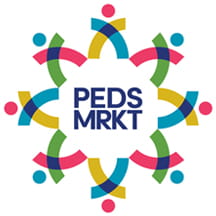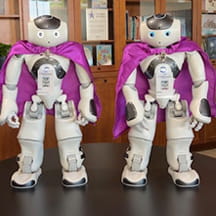Over the course of a career spanning more than 25 years in pediatric medicine, Paul Levy's work sometimes resembles that of a medical detective. But beyond diagnosing mysterious illnesses, Levy, M.D., pediatric geneticist, Children's Hospital at Montefiore (CHAM) in Bronx, New York, is known for the bond he shares with his patients—from answering calls from concerned parents in the middle of the night to hand-delivering formula to patient homes.
Children's Hospitals Today caught up with Levy to discuss his dedication to his patients and their families, the evolution he's witnessed in genetic medicine and what's next in the field.
What are the most significant advances you have seen in pediatric genetics?
The falling costs associated with sequencing over the years has been pretty revolutionary.
Changes in technology allowed for next-generation sequencing—we went from being able to sequence only one gene at a time to sequencing many genes at once. At the same time, the costs decreased; an exome sequencing 10 years ago would have been $15,000, but now I can get it done for about $3,000.
At the same time, as genetics was advancing and the testing was getting more sophisticated, it allowed for a revolution in newborn screening in the 1990s. We went from simplistic tests doing one disease at a time to using tandem mass spectrometry.
That allowed hospitals to screen for a wide spectrum of genetic disorders. Overnight, states that were previously screening infants for only two or three disorders could suddenly screen for 30 or more disorders. Today that number's up to 50, and it didn't really cost the states a lot more money.
Given those strides, what do you foresee as the biggest changes on the horizon?
Treatments. Most of the inherited metabolic disorders are due to enzyme deficiency or something like sickle cell disease or cystic fibrosis. There's a variant in a gene that CRISPR can edit, and it acts sort of like a spellcheck—if you spell a word wrong, it automatically corrects it.
In a similar manner, if you introduce the machinery into cells, the DNA that needs correction will be edited and then the cell can produce the right protein rather than a protein that does not work and causes disease.
I can see this approach being effective in treating most of the inherited metabolic disorders for which we currently screen, including urea cycle disorders (UCDs), sickle cell, Tay-Sachs disease, phenylketonuria (PKU) and cystic fibrosis. Kids would be born with it, but we'll be able to correct those disorders. I don't think we're very far off from that being reality.
As a pediatric geneticist, you solve medical mysteries and explain complex disorders to worried parents—but you're also known for a personal touch. Tell us more about the relationships you've built over the years.
For me, they're the motivation to be in medicine in the first place. I enjoy being there to help people when they need help. But I don't feel I'm much smarter than the parents of the kids I see. I have the diploma, I have a little more knowledge, a little more experience—and hopefully, I can explain what I understand so they'll understand it.
When I was in medical school, I met some amazing people—patients and families. I loved interacting with them, learning from them and being able to do little things for them—anything that could make their lives a little bit better that day.
My patients are the same. The patients with inherited metabolic disorders can get really sick quickly, so the parents need to get a hold of me if their kids are sick, because I'll need to see them in the emergency room, in clinic or wherever. In some of those disorders, the kids could die if they got really sick, so they tend to call me at any time—everyone has my cell number.
I do get attached to my patients; it's part of my training. It's a weird thing about pediatrics in that most of your patients don't talk to you—they're either unable to talk or too young, so you build a relationship with their parents.
My job is to work with the parents to get healthy kids, so I'm part of the equation.



